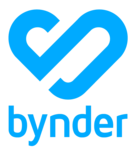Description

Brand Center
Iconosquare
Comprehensive Overview: Brand Center vs Iconosquare
Sure, let's delve into a comprehensive overview of Brand Center and Iconosquare, focusing on their primary functions, target markets, market share, user base, and key differentiating factors.
Brand Center
a) Primary Functions and Target Markets:
-
Primary Functions: Brand Center generally refers to centralized platforms designed for managing various aspects of a brand's identity and marketing assets. They are often used for housing brand guidelines, logos, media assets, and any materials related to brand communication. These platforms facilitate consistent brand communication across different channels and teams, and support collaboration by providing easy access to brand resources.
-
Target Markets: The typical target market for Brand Center platforms includes large enterprises, marketing teams, creative agencies, and any organization seeking to maintain a cohesive brand identity across multiple departments and regions. These solutions are particularly valuable in sectors where brand consistency is crucial, such as retail, consumer goods, and multinational corporations.
b) Market Share and User Base:
- The market for brand management solutions is competitive and fragmented, with numerous platforms catering to different niches within brand management. Market share and user base specifics can vary widely. Brand Centers often appeal to larger organizations with the resources to invest in comprehensive brand management solutions.
c) Key Differentiating Factors:
- Customization and Flexibility: Brand Centers usually offer extensive customization options to tailor the platform according to the specific needs of an organization.
- Integration Capabilities: These platforms often integrate with other marketing and digital asset management (DAM) tools.
- Scalability: Designed to handle complex organizational structures and large volumes of brand assets.
Iconosquare
a) Primary Functions and Target Markets:
-
Primary Functions: Iconosquare is primarily known for social media analytics, management, and scheduling. It provides detailed insights into social media performance, audience engagement, and competitor analysis. The platform helps users schedule posts, track hashtags, and monitor comments and mentions across social networks such as Instagram, Facebook, Twitter, and LinkedIn.
-
Target Markets: The primary users of Iconosquare include social media managers, digital marketing agencies, influencers, and small to medium-sized businesses that need robust social media analytics and management tools. Iconosquare is particularly popular among Instagram marketers due to its specialized features for that platform.
b) Market Share and User Base:
- Iconosquare competes in the social media management and analytics space alongside well-established players like Hootsuite, Buffer, and Sprout Social. It’s recognized for having a strong presence among small to medium-sized enterprises (SMEs) and agencies seeking specialized insights, particularly for Instagram.
c) Key Differentiating Factors:
- In-depth Instagram Analytics: Known for its comprehensive analytics and insights tailored specifically for Instagram.
- User Interface and Experience: Offers a user-friendly interface that is often highlighted in reviews for its ease of use, especially valuable for smaller teams with limited resources.
- Competitor Tracking: Provides competitive analysis features that allow users to benchmark their performance against competitors.
Comparing the Two
Overall Market Share and User Base:
- Brand Centers tend to cater to larger organizations that prioritize brand management on a macro scale, while Iconosquare appeals more to SMEs and digital marketers focusing on social media performance.
- Iconosquare might have a broader user base in terms of quantity due to its focus on social media, a widespread necessity for businesses today.
Key Differentiators:
- Purpose and Functionality: Brand Centers focus on brand consistency and asset management, whereas Iconosquare specializes in social media analytics and management.
- Target Audience Size: Brand Centers target a niche but significant segment of large corporations, while Iconosquare targets a wider range of users in terms of company size and industry.
In summary, while both Brand Center and Iconosquare serve distinct roles within the broader marketing ecosystem, their specialized focuses and functionalities align them with different segments of the market. Understanding these differences helps businesses choose the most appropriate solution based on their specific needs.
Contact Info

Year founded :
Not Available
Not Available
Not Available
Not Available
Not Available
Year founded :
2011
Not Available
Not Available
France
Not Available
Feature Similarity Breakdown: Brand Center, Iconosquare
To provide a detailed feature similarity breakdown for Brand Center and Iconosquare, let's go through the categories you've mentioned:
a) Core Features in Common
-
Social Media Management
- Both Brand Center and Iconosquare offer robust tools for managing multiple social media accounts from a single platform. This includes the ability to schedule posts, track engagement metrics, and manage interactions.
-
Analytics and Reporting
- Each provides analytics that help users understand their audience engagement, track follower growth, and measure the performance of their content over time.
-
Content Scheduling
- Both platforms allow users to schedule posts in advance across multiple social media platforms, supporting different content types such as images, videos, and stories.
-
Team Collaboration
- They offer features that support team collaboration, allowing multiple users to contribute to social media management and content creation.
b) Comparison of User Interfaces
-
Brand Center
- Typically offers a more visually-oriented interface that merges brand assets management with social media strategies. It is often designed with a focus on integrating brand guidelines and assets for a cohesive brand presentation across various channels.
- The dashboard is generally customizable, allowing users to prioritize features like brand asset uploads, access to brand guidelines, and social media analytics in a way that aligns with their needs.
-
Iconosquare
- Known for its clean and user-friendly interface tailored specifically for social media analytics and scheduling. Iconosquare has a straightforward dashboard where users can quickly access insights, reports, and scheduling tools.
- Emphasis is placed on real-time analytics and easy navigation between different social profiles, reflecting its primary focus on analytics and engagement tracking.
c) Unique Features
-
Brand Center:
- Brand Asset Management: It may offer features for storing and organizing brand-approved assets such as logos, images, and style guides. This serves as a centralized repository that ensures consistency across all media and marketing channels.
- Integration with Design Tools: Some Brand Centers integrate closely with graphic design tools for seamless updating and sharing of brand assets.
- Custom Templates: The ability to create and share custom content templates aligned with brand guidelines could be a distinctive feature.
-
Iconosquare:
- In-depth Instagram Analytics: Known for its deep focus on Instagram analytics, offering very granular insights into follower demographics, post impressions, and hashtag performance, setting it apart for users heavily invested in Instagram.
- Competitor Tracking: Iconosquare often includes features for monitoring competitors' social media performance, helping users benchmark their metrics.
- Content Performance Prediction: Some tools within Iconosquare can predict the optimal times to post content for maximum engagement, based on historical data analysis.
Each platform has its strengths and unique offerings tailored to different aspects of social media management and brand consistency, addressing specific needs for various user bases.
Features

Brand Assets
Marketing Resources
Press Kit
Campaigns
Brand Guidelines
Brand Messaging
Asset Library
Engagement Tools
Reporting and Exporting
Analytics and Insights
Content Planning
Best Fit Use Cases: Brand Center, Iconosquare
Certainly! Both Brand Center and Iconosquare serve distinct purposes and are suitable for different types of businesses and scenarios. Here’s a breakdown of their best fit use cases:
a) Brand Center
Types of Businesses or Projects:
-
Large Enterprises: Brand Center is ideal for large corporations with complex brand management requirements. These companies often have multiple sub-brands and need a centralized platform to manage brand assets, guidelines, and campaigns.
-
Global Brands: Companies operating in multiple countries benefit from Brand Center’s ability to ensure brand consistency across diverse markets and languages.
-
Agencies: Creative and marketing agencies that manage branding elements for multiple clients can use Brand Center to organize and streamline asset management.
-
Franchises: Businesses with franchise models can use Brand Center to ensure that franchisees have easy access to up-to-date brand materials and guidelines.
Key Features:
- Centralized asset management
- Brand guidelines enforcement
- Access control and version history
- Support for a broad range of media types
b) Iconosquare
Scenarios Where Iconosquare is Preferred:
-
Social Media Driven Brands: Businesses with a strong focus on social media marketing will find Iconosquare invaluable for tracking performance and optimizing campaigns across Instagram, Facebook, and Twitter.
-
SMBs and Startups: Small to medium-sized businesses and startups can leverage Iconosquare for affordable yet comprehensive social media analytics and management tools.
-
Influencers and Creators: Individuals or teams focused on growing their personal or brand presence on social media platforms can use Iconosquare for detailed insights and engagement metrics.
-
Digital Marketing Agencies: Agencies that focus on social media management can utilize Iconosquare to manage multiple client accounts and analyze performance data for various campaigns.
Key Features:
- Social media analytics and reporting
- Scheduling and content planning
- Competitor tracking
- Engagement and community management tools
d) Industry Verticals and Company Sizes
Brand Center:
- Caters to sectors like Retail, FMCG, Automotive, and Pharmaceuticals where brand consistency is critical.
- Best for medium to large companies with complex brand management needs.
Iconosquare:
- Serves industries such as E-commerce, Fashion, Lifestyle, and any domain reliant on visual appeal and social media engagement.
- Suitable for a wide range of company sizes from small startups to mid-sized enterprises, especially those with limited in-house analytics capabilities.
Conclusion: Brand Center and Iconosquare cater to different aspects of business marketing needs. Brand Center is mainly about maintaining and managing brand integrity and assets, especially for larger companies. In contrast, Iconosquare focuses on optimizing social media presence, appealing to businesses that prioritize digital engagement and growth on social platforms.
Pricing

Pricing Not Available
Pricing Not Available
Metrics History
Metrics History
Comparing undefined across companies
Conclusion & Final Verdict: Brand Center vs Iconosquare
To provide a comprehensive conclusion and final verdict on Brand Center and Iconosquare, let's consider various factors, including features, pricing, user-friendliness, and customer support. Please note that the specifics about these tools may have evolved since my last update, so it's always advisable to consult recent reviews or their official websites for the latest information.
a) Considering all factors, which product offers the best overall value?
Best Overall Value: The decision on which product offers the best overall value largely depends on the user's specific needs. If a user is primarily focused on social media management, especially on platforms like Instagram, Iconosquare typically offers more specialized tools and analytics specifically tailored for such tasks. Conversely, if the user is looking for a broader brand management tool that caters to a more comprehensive branding strategy, Brand Center may offer better overall value due to its focus on maintaining brand consistency across various channels.
b) What are the pros and cons of choosing each of these products?
Iconosquare:
- Pros:
- Strong social media analytics, particularly for Instagram and Facebook.
- User-friendly interface with detailed reporting.
- Scheduling and monitoring features are robust, making it a favorite for social media managers.
- Cons:
- It may be too narrowly focused for those needing broader brand management capabilities.
- Pricing might be higher compared to other general social media tools.
- Limited integration with platforms outside the main social networks.
Brand Center:
-
Pros:
- Comprehensive brand management tools allow for consistent brand messaging and asset management.
- Useful for teams managing branding across multiple channels and touchpoints.
- Often includes collaborative features that facilitate team efforts in maintaining brand guidelines.
-
Cons:
- May lack deep social media-specific analytics compared to Iconosquare.
- The learning curve might be steeper for those without brand management experience.
- Could be perceived as overkill for small businesses or individual users focused solely on social media.
c) Specific Recommendations for Users:
-
Analyze Business Needs:
- If your core requirement revolves around in-depth social media analytics and engagement on platforms like Instagram, Iconosquare is likely the better choice.
- If your business needs extend to broader brand asset management, brand consistency, and team collaboration on brand strategies, consider Brand Center.
-
Budget Considerations:
- Weigh the costs against the features you will utilize frequently. Choose a product that aligns best with your budget and offers the most essential features for your business.
-
Trial Period and Demos:
- Take advantage of free trials or demos that both products might offer. This approach allows you to experience the interface, features, and support service firsthand and make an informed decision.
-
Scalability:
- Consider your future needs. If your brand or company is growing and likely to expand its social media presence or branding requirements, choose the product that can scale with you.
In conclusion, neither product is definitively superior; the choice hinges on specific needs relating to brand management versus social media analytics. Evaluating your organization's primary objectives will guide you toward the tool that offers the most value for your situation.
Add to compare
Add similar companies



